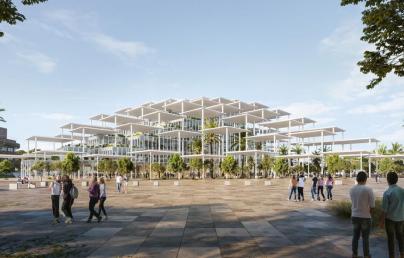
The role of energy agencies in building renovation

The role of energy agencies in building renovation
Building conversations up with... Seamus Hoyne, coordinator of ManagEnergy, and Velimir Segon, Deputy-Managing Director, REGEA
Background
Seamus Hoyne, Project manager and team leader with a systematic and structured approach to development activities. He has an extensive network regionally, nationally and internationally specifically in the sustainability, sustainable energy and higher education fields with a thorough knowledge and experience of European and national funding schemes with experience in coordinating large-scale multi-national projects. Since 2021, he has been head of the centre of the TUS Thurles campus and principal investigator for the Sustainable Development Research Institute (SDRI) in TUS. He is currently Chair of the Board of Tipperary Energy Agency and Secretary General of FEDARENE.
Velimir Segon, Based in Croatia, he has over 25 years of experience working in the energy sector. Since 2008 he has been Deputy Managing Director at North-West Croatia Regional Energy and Climate Agency where he is responsible for RES and RUE project implementation on the local/regional level, overall project coordination through all implementation steps with focus on project financing models/mechanisms, coordination of project team personnel, communications with clients and all other activities required during project implementation. Previously he worked at the Energy Institute Hrvoje Pozar and Faculty of Electrical Engineering and Computing University of Zagreb. Since 2022 he has also been Director of the company Zagrebački sunčani krovovi Ltd, established and owned by the City of Zagreb, with the main objective to implement investments in PV systems. Velimir has participated in the implementation of over 50 EU-funded projects focused on sustainable energy, most notably in 4 ELENA funded projects.
BUILD UP (BUP): How does the ManagEnergy Initiative, and the energy agencies it supports, contribute to advancing building renovation efforts across Europe?
Seamus Hoyne (SH): Energy Agencies are at the heart of the energy transition and are constantly working with public authorities, enterprises, industry and communities on energy transition projects. Energy renovation is central to these actions and without energy agencies acting as facilitators between multiple stakeholders, many of these projects would not come to fruition. ManagEnergy provides energy agencies with skills (through Masterclasses) on facilitation, establishing one-stop-shops, and financing. It also provides energy agencies with expert knowledge through its Expert Missions where agencies can go in-depth into strategies and solutions to address the renovation challenge.
Velimir Segon (VS): The ManagEnergy Initiative is vital in empowering energy agencies across Europe and REGEA is proud to contribute directly by delivering Expert Missions. Through these missions, we offer hands-on support and share our expertise with other energy agencies, helping them to develop and implement effective building renovation strategies. Additionally, the initiative’s dedicated Masterclasses provide invaluable training opportunities, with a particular focus on topics such as innovative financial instruments. At REGEA, we actively lead sessions on these financial innovations, equipping agencies with the tools they need to fund and scale up their renovation projects. This combination of targeted guidance and practical knowledge-sharing is helping to accelerate building renovation efforts throughout Europe.
BUP: In the context of building renovation, how do local and regional energy agencies drive change and innovation? Could you provide examples of successful projects they have led?
SH: The range of scope of actions which energy agencies carry out concerning building renovation is extensive. My colleague Velimir will showcase the work of REGEA, but broadly energy agencies enable building renovation through: a) information provision by acting as independent experts, b) technical advice on current and emerging products and services, c) feasibility studies and analysis, d) establishment and operation of one-stop-shops (in particular in residential retrofitting) development of innovative financing solutions, f) building performance analysis, and g) long term renovation strategies and decarbonisation solutions.
VS: Local and regional energy agencies like REGEA are key drivers of change and innovation because we are directly connected to the communities we serve. Since its establishment in 2008, REGEA has supported its founders (three Croatian counties and the City of Zagreb) as well as other Croatian cities to start and implement investments in the retrofit of public buildings of over 500 million euros.
Currently, we are implementing two key EU-financed projects focused on the retrofit of public buildings, namely Croatian One-Stop-Shop (CROSS) financed through the LIFE programme and ZA-GREEN financed through the ELENA facility of the European Investment Bank (EIB). Both of these have started in 2023, and the results will include over 100 retrofitted public buildings by 2026.
Additionally, we have led projects that focus on the integration of renewable energy sources in municipal buildings, primarily PV-integrated systems, ensuring that our renovation efforts contribute to the broader goals of sustainability and climate neutrality.
Velimir Segon: ‘Local and regional energy agencies like REGEA are key drivers of change and innovation because we are directly connected to the communities we serve’
BUP: One of the areas that many One Stop Shops are able to tackle is the financing of building renovation. What opportunities exist for OSS to integrate and use financial instruments as part of their offering?
SH: The ManagEnergy Masterclass on OSS covered this topic and found that energy agencies and other OSS stakeholders are still considering how best to address this issue. Different solutions are required for residential and non-residential sectors, and the evolving and complex marketplace is a challenge to negotiate. In the residential sector, subsidies and low-interest green loans dominate the market, while the non-residential sector is seeing increasing focus on EPC solutions.
VS: One-Stop Shops (OSS) have a significant opportunity to streamline the financing process for building renovation by integrating various financial instruments. At REGEA, we see the potential in combining grants, loans, and private investments to create customised financial packages for building owners. For example, OSS can act as intermediaries, helping clients navigate through complex financing schemes, including EU funds, national incentives, and green loans. By simplifying access to finance, OSS can accelerate renovation efforts and make them more accessible to a wider audience.
The already mentioned LIFE CROSS project which REGEA is coordinating is focused on providing OSS type of support to Croatian counties, cities and municipalities and through this we are actively promoting use of financial instruments.
Seamus Hoyne: ‘In the residential sector, subsidies and low-interest green loans dominate the market, while the non-residential sector is seeing increasing focus on EPC solutions’
BUP: What are the key challenges and opportunities in securing financing for large-scale retrofit projects, and how can energy agencies overcome these obstacles?
SH: The fundamental challenge is the scale of the challenge in terms of the number of buildings and the ability to access finance from various sources. Energy agencies are ideally placed to complete the technical analysis so that local and regional authorities and other public bodies can address the challenges in a structured and phased approach. This analysis also allows for aggregation and clustering/bundling of projects thus creating scale and increasing impact – thereby enabling other financing instruments to be applied. Through the various Masterclasses, these obstacles are being discussed and solutions presented for agencies to implement.
VS: Securing financing for large-scale retrofit projects can be challenging due to the high upfront costs and long payback periods. However, the opportunities lie in leveraging innovative financial instruments like Energy Performance Contracts (EPCs), which allow for the financing of projects through the savings generated. At REGEA, we have successfully used EPCs in several projects, most notably through the ELENA NEWLIGHT project where we managed to aggregate 57 cities and municipalities which retrofitted their public lighting systems. By developing strong partnerships with financial institutions and demonstrating the long-term benefits of these retrofits, energy agencies can overcome these obstacles and unlock significant investment.
BUP: What role do public-private partnerships play in enhancing the financial viability of energy renovation projects?
SH: Many local and regional authorities have experience with PPPs but not necessarily for energy projects. The EU Commission is clear that mobilising private sector finance is critical if we are to achieve our climate neutrality goals and ambitions. Thus, utilising EU and National funds to leverage private sector investment is key. In ManagEnergy we explore examples of leveraging public funds through the EIB ELENA funds or other schemes at the regional/national level. Developing such solutions requires building strong relationships between public and private actors, and energy agencies are well placed to build trust, showcase best practices, and act as independent advisors.
VS: Public-private partnerships (PPPs) are essential for enhancing the financial viability of energy renovation projects because they combine public-sector oversight with private-sector efficiency and investment. Such partnerships allow to sharing risks and rewards, making projects more attractive to private investors while ensuring that public goals related to energy efficiency and sustainability are met. At REGEA we have numerous examples of successfully implemented projects which combine private and public partners, like instalment of PV systems through the PPA (Power Purchase Agreement) model, biomass heat contracting and various types of EPC (energy performance contracting) models.
However, the benefits of implementing projects through a combination of private and public partnerships are not only in making projects more financially viable but also in better risk management as well as enabling public partners to focus on their main task. For example, implementing a biomass heat contracting project in a school means leaving all worries of operating the biomass boiler (for example, biomass fuel procurement and quality control) to the private partner. The school management can then effectively concentrate their efforts on providing high-quality education.
Velimir Segon: ‘Public-private partnerships (PPPs) are essential for enhancing the financial viability of energy renovation projects'
BUP: What innovations in financing mechanisms (e.g., green bonds, energy performance contracts) are emerging as game-changers in the field of energy renovation?
SH: Green Bonds, new applications of EPCs are being considered by agencies and their partners across Europe. While they can be considered as innovations, they are in fact applications of existing tools in the finance market to energy renovation projects. The challenge is to ensure robust processes that share risk and maximise energy and carbon savings. Energy saving as a service is also emerging as a topic for discussion. The challenge for energy agencies is to maintain an up-to-date knowledge of these innovations and ManagEnergy allows energy agencies across Europe to share their experiences through webinars, Masterclasses, Expert Missions and our new Work Shadowing initiative.
VS: Energy Performance Contracts (EPCs) and green bonds are indeed emerging as game-changers in the field of energy renovation. EPCs allow us to finance energy efficiency improvements through the savings generated, making it easier to undertake large-scale renovation projects without requiring significant upfront capital. At REGEA, we have also explored green bonds as a way to attract investment in sustainable projects. Currently, we are supporting the City of Zagreb which is planning to issue green bonds to finance its sustainable energy projects. These innovative financing mechanisms are crucial in scaling up renovation efforts and meeting our energy and climate goals.

